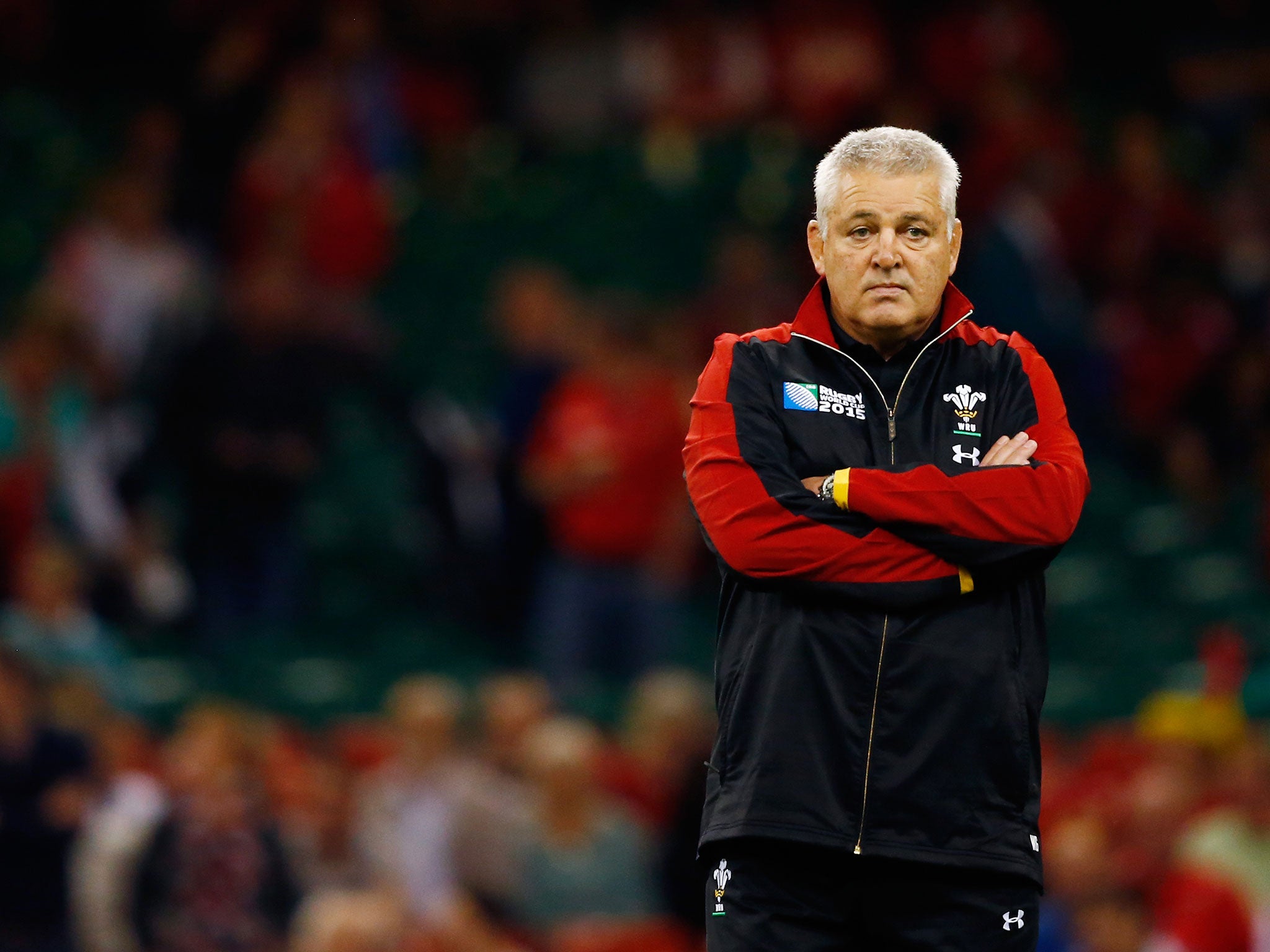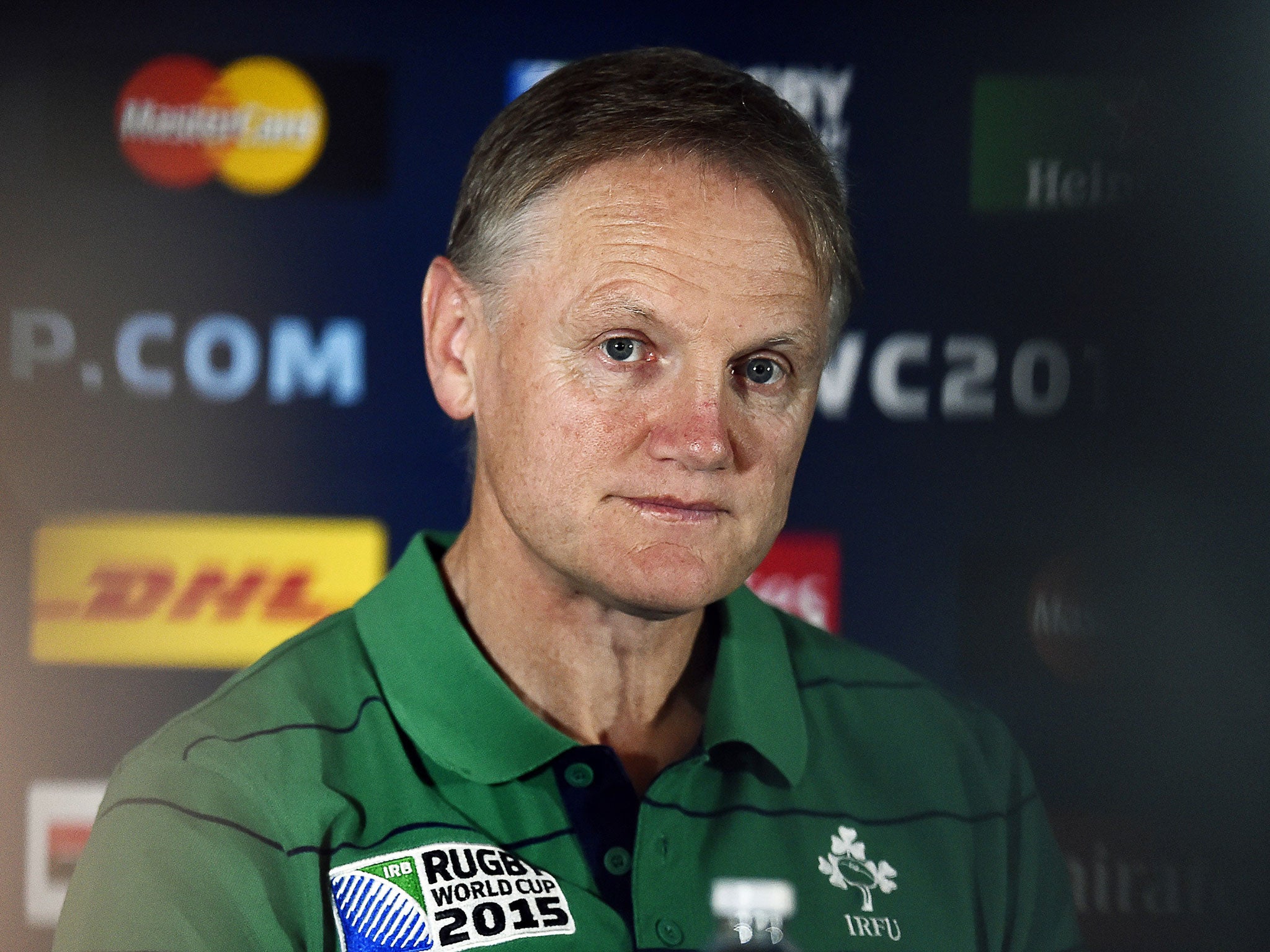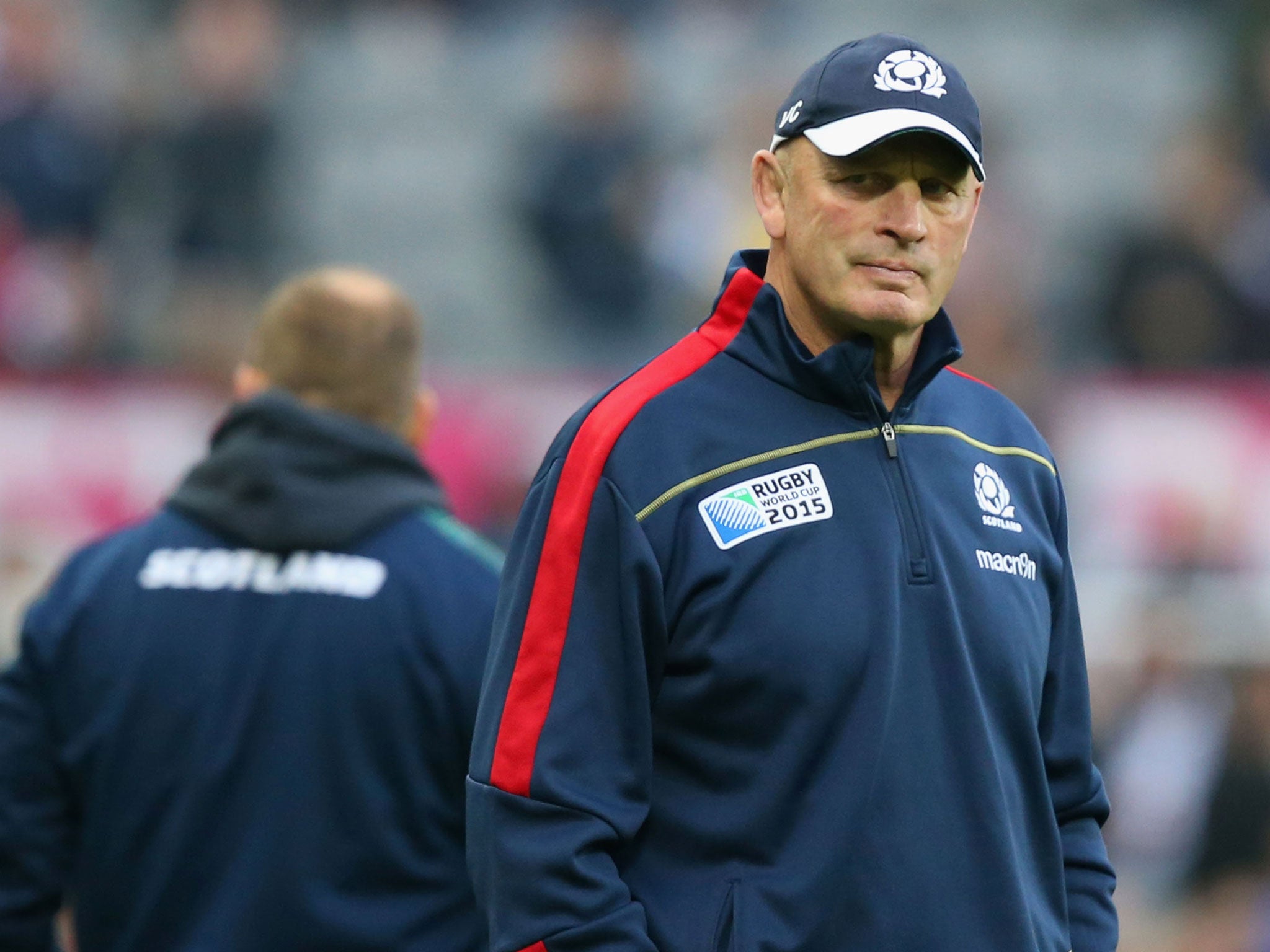RWC 2015: Celtic Tiger ready to roar on the biggest stage as Ireland, Scotland and Wales bid for glory
Three countries with a very obvious All Black flavour are reaping the rewards of giving their No 10s licence to thrill

Your support helps us to tell the story
From reproductive rights to climate change to Big Tech, The Independent is on the ground when the story is developing. Whether it's investigating the financials of Elon Musk's pro-Trump PAC or producing our latest documentary, 'The A Word', which shines a light on the American women fighting for reproductive rights, we know how important it is to parse out the facts from the messaging.
At such a critical moment in US history, we need reporters on the ground. Your donation allows us to keep sending journalists to speak to both sides of the story.
The Independent is trusted by Americans across the entire political spectrum. And unlike many other quality news outlets, we choose not to lock Americans out of our reporting and analysis with paywalls. We believe quality journalism should be available to everyone, paid for by those who can afford it.
Your support makes all the difference.When England fell from their World Cup perch at Twickenham a week ago, having shown about as much life as the Pythons’ parrot and played a brand of rugby that was significantly less colourful, their demise was accompanied by the sound of roaring from the further-flung parts of these islands. It was the last thing Stuart Lancaster and his countrymen wanted to hear: the Celtic Tiger glorying in its superiority.
Wales and Ireland have already qualified for the knockout stage; Scotland will do so if they prevail over Samoa, profoundly disappointing thus far, in Newcastle this afternoon. Only twice in World Cup annals have the three nations found their way into the quarter-finals en bloc – in the inaugural competition in 1987 and again in Australia in 2003 – but on those occasions, they were accompanied by the bloody English in all their green-wellied arrogance, as certain leading union figures in the Celtic lands have been known to put it. We are in new territory now. Suddenly, the welly is on the other foot.
A shocking development? The whole union world turned upside down, along with its cup? Not quite. Recent events at Six Nations level tells a story of growing confidence in Cardiff and Dublin – four titles for Wales and three for Ireland in the last decade, set against one for England – while the Scots, down to the bare bones in the elite club game with just two professional teams, appear to be on the brink of a blue-shirted renaissance after recruiting Vern Cotter as head coach and unearthing a small but perfectly formed handful of quality midfielders.
Cotter is an interesting figure in himself: not everyone has iron will to go shopping for players in the southern hemisphere and then fast-track them into the Test set-up without caring a fig for local sensibilities. As a representative of what might be called the “New Zealand new wave”, he is fascinating. As advocates of the “Great Man Theory of History” gather at the gates of Twickenham to rubbish the beleaguered Lancaster for the perceived inadequacies in his coaching credentials – the implication being that the lack of a stellar playing career rendered him incapable of running something as important as the England team – the Scots are revelling in the improvements made by… a boss without a stellar playing career.
Precisely the same might be said for Joe Schmidt, the Kiwi in charge of Ireland, and if the Wales coach, Warren Gatland, was a good enough hooker to represent the All Blacks, the closest he got to a full international cap was a seat on the bench. As for the four remaining New Zealanders performing head coach roles at this tournament – Kieran Crowley with Canada, John McKee with Fiji, Milton Haig with Georgia and Steve Hansen with the All Blacks themselves – only the first of that quartet played Test rugby.
The point is reinforced by the roll call of World Cup-winning coaches. Bob Dwyer and Rod Macqueen of Australia, Kitch Christie and Jake White of South Africa, Graham Henry with the New Zealanders of four years ago… the number of caps between that little lot amount to a big fat zero. When it comes to coaching in the rugby stratosphere, there is clearly a difference between a “great man” and a “great former player”.
Creative spirits thriving
More relevant is the fact that all three Celtic teams are being bossed by people from you know where. New Zealanders are not the only people who understand the union game – before the one-point win over France in the Auckland final four years ago, they had come up short in five consecutive World Cups stretching back two decades – but in no other country on the face of the earth is the union code so rooted in the shared experience of the entire population.
I do think a lot of people who coach the game back home know what winning rugby looks like
“It’s too easy to generalise, but I do think a lot of the people who coach the game back home know what winning rugby looks like,” Gatland said this week. At which point, it was impossible not to think of England’s own pursuit of a New Zealand rugby sage, back in the early months of 2012. His name? Wayne Smith. The response? “Thanks, but no thanks.”
There is another common theme running through Celtic rugby in this tournament: the success of the three teams in giving their most creative spirits – the respective outside-halves – the space and opportunity to imagine and invent, to instigate and influence. Dan Biggar of Wales, saddled with the goal-kicking duties in the absence of the stricken Leigh Halfpenny, might have shrivelled under the pressure; instead he has grown in stature before our very eyes. Jonathan Sexton of Ireland? Some of his rugby in a golden half-hour or so during the opening game against Canada – not least an attacking diagonal punt executed three metres from his own line – was too good for words.
And then we have Finn Russell of Scotland, fully recovered from the injury he picked up while orchestrating his country’s victory over the United States a little under a fortnight ago and back at the heart of matters for this afternoon’s crunch game with the Samoans. Russell may be his country’s richest No 10 talent since Gregor Townsend, but his lack of tactical restraint makes him a high-risk sort. Yet Cotter, a granite-faced New Zealander from farming stock who looks as though he would rather eat his own feet than take a gamble on some fly-by-night midfielder, seems happy to back him.
Compare and contrast this with England’s handling of George Ford – and, if you like, Danny Cipriani. The two “ideas men” of the red-rose playmaking fraternity were marginalised, either during the tournament or before it. If a no-nonsense sort like Cotter is prepared to accommodate Russell’s occasional madnesses, why was it that the red-rose coaches found it so difficult to support two outside-halves with far lower error counts?
Three huge matches
Should Wales beat the Wallabies at Twickenham to top the “pool of death” and Scotland do a job on the Pacific islanders, the two will meet on knock-out business in London in eight days’ time, thereby guaranteeing the Celts at least one semi-finalist. If, as many appear to assume, Ireland prevail over France in tomorrow’s big Sabbath fixture at the Millennium Stadium, they too will win their group and be set fair for a place in the last four, although there is no easy way past either Philippe Saint-André’s dangerous band of Tricolores or Daniel Hourcade’s impressive Argentine team, the likely Pool C runners-up who are not a million miles away from being a top-three nation.
While the cross-hemisphere games in south-west London and on Tyneside have some stardust about them, the heavyweight European bout in Cardiff may pack the biggest punch. The French know plenty about Sexton – particularly the contingent from the Parisian club Racing Metro, where the Irishman was until recently earning his weekly wage – and they have not been slow in baiting a man they have taken to calling the “Zlatan Ibrahimovic of rugby”, in irony-infused honour of the famously egocentric footballer.

Eddy Ben Arous, the loose-head prop who has shared a dressing room with Sexton over the last couple of seasons, was among the first out of the blocks. “I know he is slow in getting rid of the ball, so I’ll try to put the maximum pressure on him,” he said. “I am going to hunt him down as often as possible. We’ll go after him 200 per cent because he is their most valuable player.” Leaving aside the question of whether a mere 200 per cent is nearly enough in an age when sports people routinely pledge to give a million per cent in pursuit of their ambitions, the message is crystal clear.
Yet Sexton is one of the men driving Celtic rugby forwards – a player at the forefront of a surge that is threatening to belittle England, the best resourced union-playing nation of them all but no better than eighth in the current global rankings. Together with some fellow Irishmen (the eye-catching lock Iain Henderson springs to mind), the Scotland full-back Stuart Hogg and sundry members of the Wales pack – Alun Wyn Jones, Sam Warburton, Toby Faletau – he is the standard-setter.
Flavour of Lions gives a clue
Perhaps the most obvious way to gauge the balance of power in the European game is to imagine a British & Irish Lions side taking the field for a must-win Test and consider the likely personnel. How many red-rose players would seriously fancy their chances of selection right now? Anthony Watson on the wing and…er…that’s it. And it has been this way for a while. The last time the Lions took the field, in Sydney for the decisive match of the series with the Wallabies in July 2013, the English presence in the starting line-up was limited to a couple of tight forwards in Alex Corbisiero and Geoff Parling.
How many England players would get into a Lions team now?
Alone among the Celtic nations, Ireland have yet to make an appearance in a World Cup semi-final. They have a shot this time, but a green-shirted failure against Les Bleus tomorrow will leave them at the mercy of the All Blacks next weekend – a fate well worth avoiding, given a Test record between the two countries that tilts ever so slightly towards the reigning champions. That is to say, the New Zealanders have won 27 out of 28...with one draw.
Maybe, on quiet reflection, Wales have the best chance of reaching the last four. Even if they lose on Saturday, the thought of a quarter-final against South Africa will leave them some way short of petrified: they beat the Springboks at the Millennium Stadium last time out, should have done for them in Nelspruit some 20 months ago and lost to them by the grand total of a single point at the 2011 World Cup.

Sitting in the lobby of the team hotel in Surrey a couple of days ago, Gatland could be seen sipping a king-sized coffee with a soft smile on his battered old front-rower’s visage. Even if Wales lose to Australia Saturday, the epic victory over England a fortnight ago leaves him comfortably ahead of the game. Worse still from the red-rose point of view, the whole of Celtic rugby is on the rise. This is no time to be planning a swanky car-boot picnic in the west car park of Twickenham. Unless, of course, you’re a visiting supporter.
Join our commenting forum
Join thought-provoking conversations, follow other Independent readers and see their replies
Comments